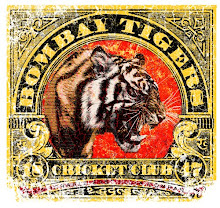I hope that he, or anyone else reading this, will forgive any of the inaccuracies reported here. I say this with all reverence and mean no disrespect.
 Many of the Temples have 'chariots' or wagons on which the Lord is placed and pulled through the streets by the devout, pulling on long chains. The chariot, which by itself can be enrmous, is decorated for the event
Many of the Temples have 'chariots' or wagons on which the Lord is placed and pulled through the streets by the devout, pulling on long chains. The chariot, which by itself can be enrmous, is decorated for the eventThere are, of course, lots of Hindu gods, and they incarnate into many avatars, Krishna being the incarnation most familiar to us in the West 'cause of the saffron robed folks who used to dot the airports. The avatars have lots of adventures and kill demons and create rivers and mountains and many such things. The numerous temples in India celebrate the various avatars and their deeds.
One of the things Krishna did was drive a chariot in one of the major Hindu epics, the Mahabarata. The caste of chariot drivers are called Sarathy, hence Kaushik's family's interest in the temple. BTW you can tell this incarnation of Krishna because he has "moustaches".

So the chariot is constructed without a turning mechanism, and so with a combination of wedges, weighted brakes on the back, and rice flour, the chariot is turned through the streets. The guy in the picture is holding one of the wedges, which doesn't seem so big when you consider the size of the wheel behind him.

Kaushik did get me into the line and I pulled on the chain for a while. It was a really hot morning, despite the early hour. We didn't pull long or far, but I can imagine that it would be a religious experience to pull it all the way around.

I tried to make some comment about the idea that if the chariot driver was riding in the chariot, who would be driving? But the irony didn't make it through the translation.


No comments:
Post a Comment